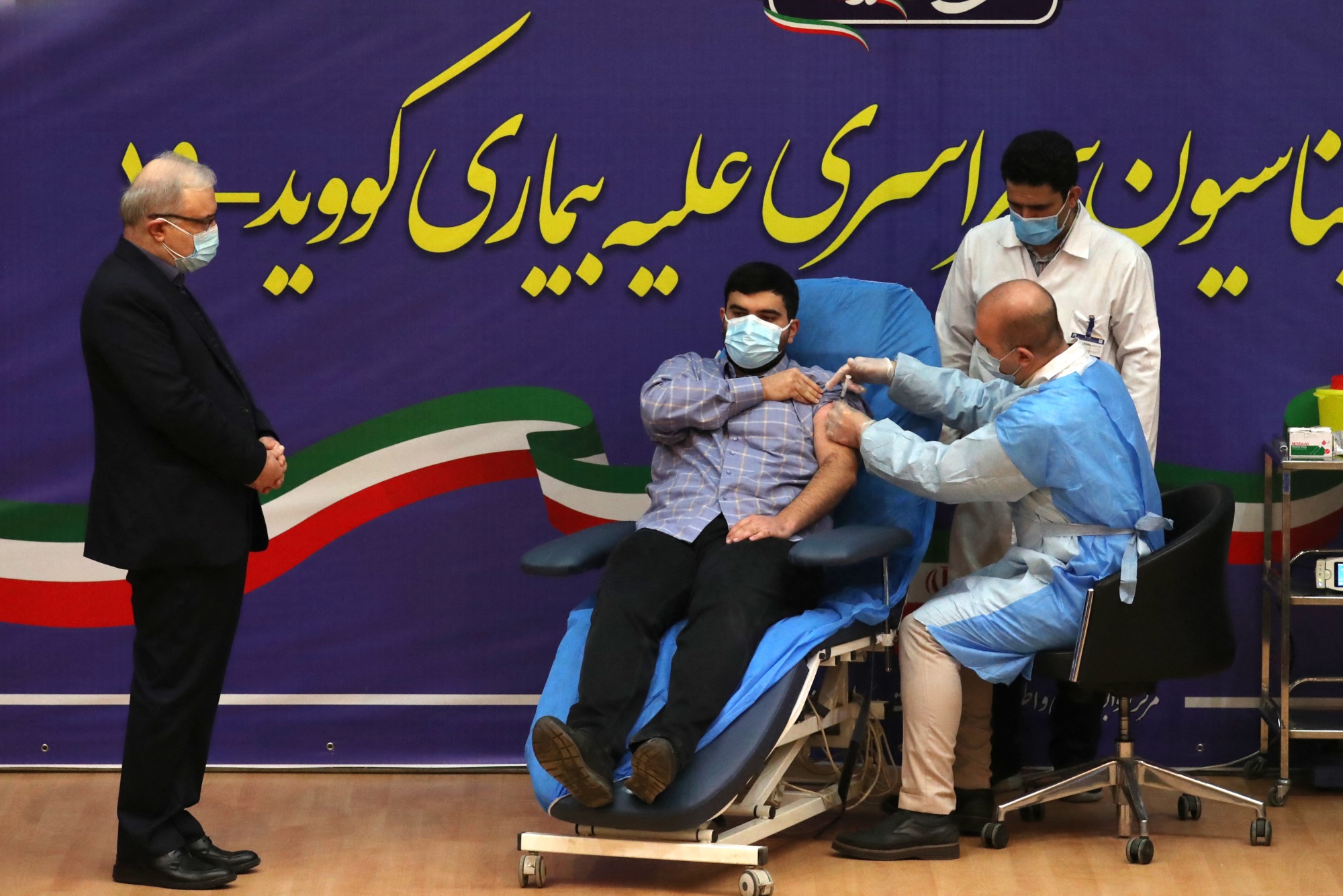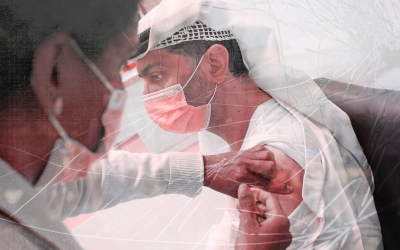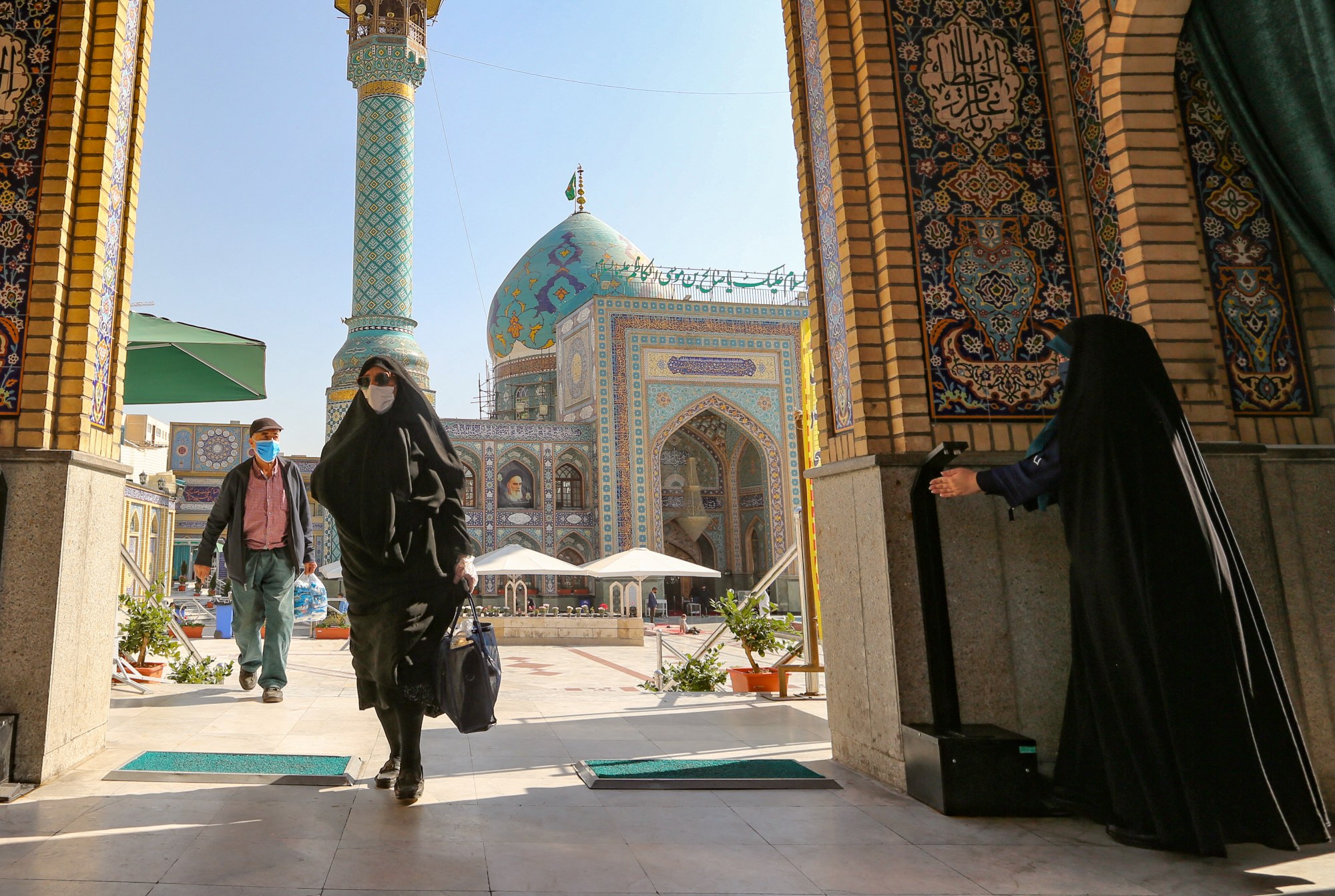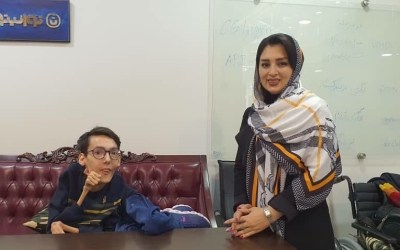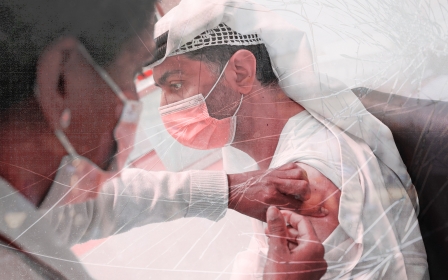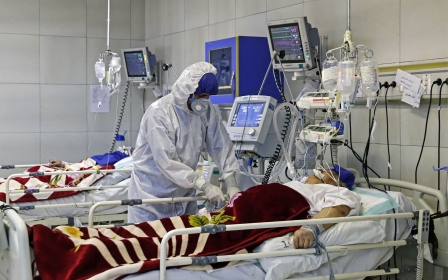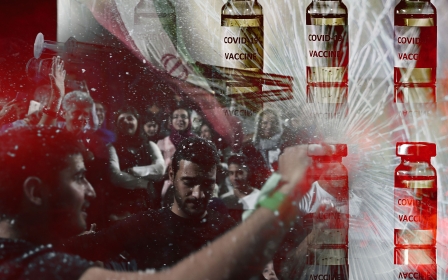Covid-19: Iran's rich go abroad for vaccines, while the poor are stuck in limbo
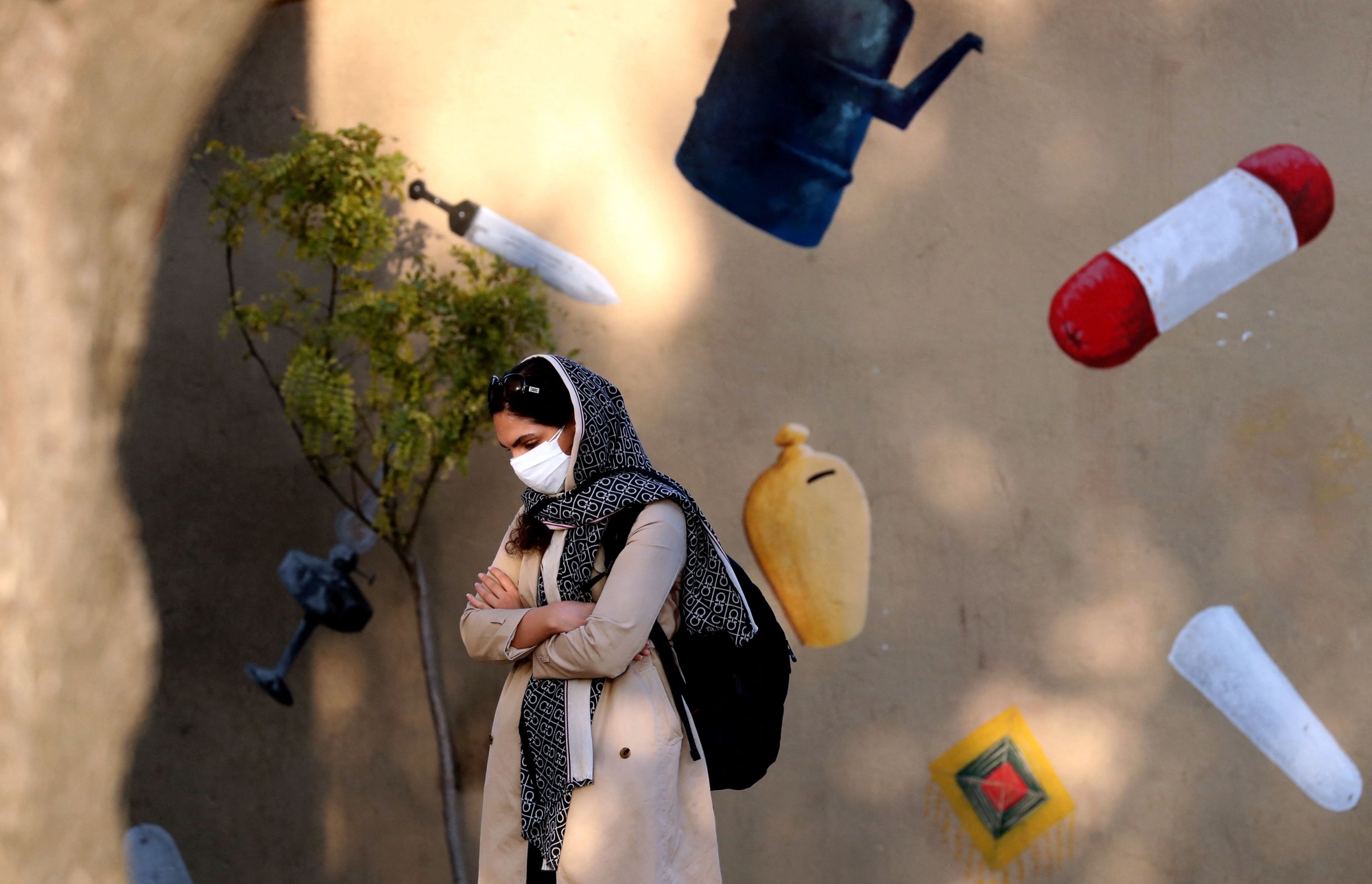
"Why isn't your face mask on properly? Are you one of the lucky ones who got the shot?" a man in the front passenger seat of a collective taxi asked the driver, as the vehicle manoeuvred the notoriously heavy traffic of Tehran's Grand Bazaar.
The middle-aged driver, his mask resting below his nose, burst into loud laughter, turned toward the passenger and replied: "A shot? Oh no, of course not. Oun male az ma behtaroune!"
This old sarcastic Farsi phrase, meaning "It is only for the people better than us," has been the reply to many questions since widespread corruption and international sanctions pushed millions of ordinary Iranians to the verge of economic collapse.
'When the vaccine is available in France, we will go there, because here I can't trust the imported vaccines'
- Roya, Iranian nurse
Now, as the Middle Eastern country worst hit by the coronavirus pandemic faces a fourth wave of coronavirus, az ma behtaroun - the people better than the rest of Iranians - are those rich enough to have access to the Covid-19 vaccine.
In January, the Iranian government vowed to produce various local vaccines, import two million shots from Russia by 20 March, manufacture a vaccine with Cuba, and even export it to the world.
However, Iran has so far imported only 785,000 doses of Russian, Indian and Chinese vaccines, with a vague plan for the vaccination of 83 million Iranians.
On 4 February, President Hassan Rouhani's government, under intense public pressure, announced the arrival of 20,000 doses of Sputnik vaccines, as politicians in Tehran congratulated each other for importing the shots despite harsh US sanctions.
On 19 February, officials announced the beginning of Iran's Covid-19 vaccination drive, with Parsa Namaki, the son of Health Minister Saeed Namaki, becoming the first person in the country to receive the vaccine.
But while the health ministry has announced that the elderly, people at high risk and healthcare workers would have priority to receive the jab, Iran has yet to properly begin a nationwide vaccination roll-out.
No public vaccination centres have been set up in the country. No data is publicly available regarding the number of people who have received the vaccine and who they are. No schedule has yet been announced for the vaccination of the elderly and those with pre-existing health conditions.
With the vaccination process effectively in limbo in Iran, those with connections in high places, or who can afford to travel to other countries for the jab, are among the lucky few, the az ma behtaroun. The rest of Iranians, meanwhile, are stuck in limbo with no end in sight.
Flying first class to the vaccine
In spite of countless government statements, health professionals in Iran are unconvinced.
"All we've seen is just a show," the head of an Iranian pharmaceutical company’s research department told Middle East Eye, on condition of anonymity. According to him, Iran's healthcare system is not capable of beginning a nationwide vaccination campaign before autumn, when it produces sufficient homegrown doses of the Covid-19 vaccine.
"In reality, we can't buy the vaccine because our money is not ready, and even if it's ready, we can't transfer it due to the [US] sanctions," the researcher added.
"On the other hand, we still have a long way to go to produce enough vaccines for our population. Again, because we can't import all the raw material we need in the pharmaceutical industry, nor do we have the modern infrastructure for vaccine production."
As the official coronavirus death toll in Iran surpassed 62,000 in March, wealthy Iranians with foreign residency have several vaccination options.
On 25 March, health ministry spokesman Kianoush Jahanpour admitted that Iran had failed to meet its timetable of vaccinating at least 1.3 million people by the end of the Iranian calendar year, on 20 March. However, he blamed the delays on the 10 wealthiest countries for reportedly buying 75 percent of all vaccines produced worldwide.
For Shervin, 26, the United States is the best option as he has a green card. He was studying architecture in San Francisco, California when the pandemic started. With the closure of the universities, he moved to his mother's two-storey house in Denver, Colorado. There, he said, he did not feel comfortable due to what he explains as "lack of independence".
Eventually, last March, Shervin returned to Iran, continuing his studies virtually and living alone in a three-bedroom flat in one of Tehran's fancy skyscrapers.
"I will soon return to the US," he told MEE. "My mom is so worried about the pandemic in Iran, and each time we talk, she asks me to go to the US and receive a shot."
Roya, a 55-year-old nurse, and her husband, Fathi, a 57-year-old surgeon, both have residency in France. For them, the only question is when - not if - to fly to Paris.
The couple decided to leave their jobs in a hospital in Tehran in February 2020 at the very beginning of the pandemic and stay at home and wait. They did not want to go to France when the vaccine was still unavailable, especially if that meant them working at a French hospital and facing a high risk of exposure to Covid-19.
"First, we wanted to go to France in April, but now we will wait longer," Roya said. "When the vaccine is available in France, we will go there, because here I can't trust the imported vaccines.
"Even if international organisations approve them, we don't know how they were stored, or even if they were really produced in China and Russia. They [the Iranian government] can fill the vials with vitamins and say that's the vaccine; nothing is unlikely from them."
The United Arab Emirates is another destination for affluent Iranians seeking to get vaccinated. Because of visa restrictions, only Iranians with an Emirati residency permit can enter the country and receive the vaccine.
Amir Ensafy, a travel agency manager in Tehran, told MEE that since Supreme Leader Ali Khamenei's ban on importing US and UK vaccines, he has arranged journeys to the UAE for 12 wealthy Iranian families with a residency permit.
"They are the super-rich, who run a business in the UAE but live in Iran," Ensafy said. "All of them also have a place to live in Dubai, and they can afford to stay there for a month, get the jab and then return."
Farnoush* and her parents have UAE residency thanks to her father's import and export firm registered in the UAE. Still, they do not have accommodation there, so the family decided that only the parents would travel to Dubai for vaccination.
"It's too expensive to go to Dubai only for the vaccine," she told MEE. "I decided to wait until the summer and see how the vaccination will develop in Iran.
"I don't care if I get the Iranian vaccine or the Russian or the Chinese, but it is different for my parents who are over 60 and at high risk," she said.
Dubious remedies
While some like Farnoush's family are able to make a choice, most Iranians are not so lucky.
In the absence of a proper plan for vaccination, and little hope for it to materialise in the near future, some Iranians have turned to unproven methods that claim to prevent or cure Covid-19.
Drinking camel urine, drinking methanol, and smoking opium are some of the fake treatments used by some, despite health officials' warnings.
'I prefer not to even think of the vaccine. Here, our life and death are not in our own hands'
- Reza Shams, 68-year-old Iranian
Local media in Iran have widely reported on opium and methanol alcohol consumption and disproven claims about the impact of these products on the Covid-19 virus, but not everyone listens to these warnings.
"I'm sure I have got the virus, but nothing happened to me because I have been consuming opium since the beginning of the pandemic," a 28-year-old Tehran supermarket employee told MEE.
"They [officials] say a lot of things, and most of the time, they lie," he added, echoing the doubts of people like Roya, the France-bound nurse. "Every day, I've been in contact with hundreds of people, and it seems that with opium I've become virus-proof.
"Now, the only problem I'm thinking of is how to quit it," he said.
While those who subscribe to unorthodox Covid-19 measures are a minority, millions of Iranians at risk have no other choice than do their best to survive until the country is able to roll out the vaccine, whenever that may be.
Reza Shams, 68, has congestive cardiac failure and has already beaten Covid-19 once. In September, he contracted the virus, and since then he has locked himself in his tiny apartment in eastern Tehran. His daughter is the only person who visits him, every week, and brings him groceries and essentials.
"If you think I'm not afraid of the virus any more, you are very wrong," he told MEE on the phone. "Since I caught the virus, I'm even more scared, because now I know no matter how careful you are, you might get it. And I'm not sure if I would survive it a second time."
Shams said he is tired of following the news about the number of imported vaccine doses or the progress of vaccine production in the country, and feels frustrated every time he thinks of when he might finally receive the jab.
"Can I go to Dubai get the vaccine? No. Can I beg Biden or Putin to send us more vaccines? No. I prefer not to even think of the vaccine. Here, our life and death are not in our own hands."
*Name has been changed
Middle East Eye propose une couverture et une analyse indépendantes et incomparables du Moyen-Orient, de l’Afrique du Nord et d’autres régions du monde. Pour en savoir plus sur la reprise de ce contenu et les frais qui s’appliquent, veuillez remplir ce formulaire [en anglais]. Pour en savoir plus sur MEE, cliquez ici [en anglais].


